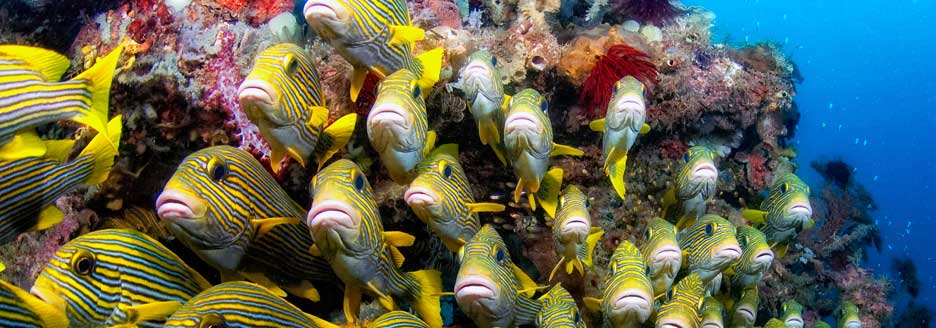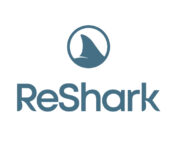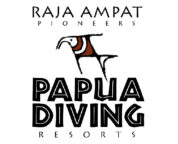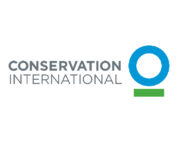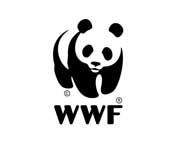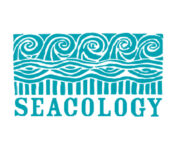When traveling the Raja Ampat in 1989 in search of Second World War remains (vehicle-, aircraft- and shipwrecks), Max Ammer fell in love with the area and its people.

Being the pioneers, from day one, our attitude was not to tell others what not to do, instead, we worked to come with alternative solutions. People earlier involved in logging, bomb fishing, shark finning, turtle poaching and fishing with potassium cyanide are now some of our best team members. They became conservation warriors. The first bomb fisher team in jail in Sorong ever (more than 25 years ago) was arrested by our team and since then, most of the former destruction practices have been 100% halted.
While our mother company Papua Diving has been introducing conservation and community-based initiatives in Raja Ampat since 1993, we saw the need to restructure and so established the Raja Ampat Research and Conservation Center (RARCC) as an independent NGO in The Netherlands in 2009, and as an Indonesian foundation (Yayasan) in 2015. The majority of Papua Diving’s net profit goes to the RARCC, as well as 100% of the profit of the internationally award-winning project Kayak4Conservation.
The RARCC works in education for children and adults and engages indigenous communities in the deployment of financial self-reliant projects which stimulate conservation and protection for the people of Raja Ampat.
In 2015, Max Ammer got the “Visionary Conservationist Award”, granted by Conservation International, for his “tireless efforts to reveal and protect the stunning natural beauty of Raja Ampat and promote its sustainable use.”
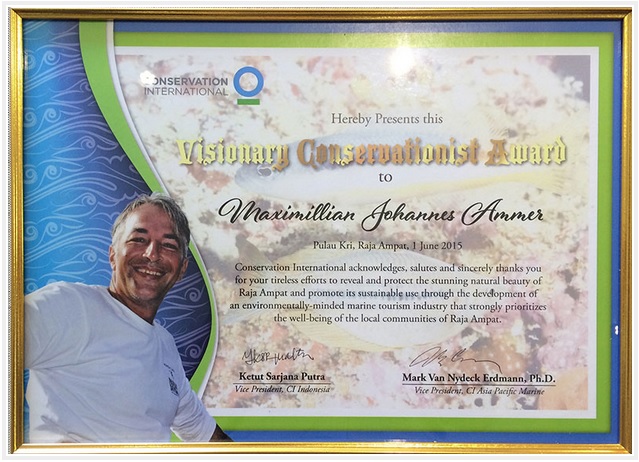
Due to our conservation efforts and especially God’s grace, the area surrounding our center host the richest diversity of fish in the world. In 2013, 374 different species of reef fish were counted. This is 91 species more than 11 years previously. Both surveys were conducted by Dr. Gerald R. Allen.
We are also truly thankful to all our supporters who help us to make all this possible. Together we safeguard Raja Ampat and the well-being of the Papuan people.
